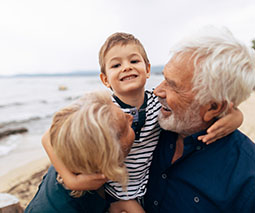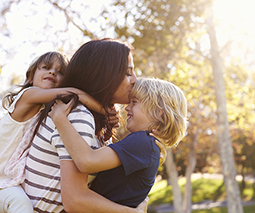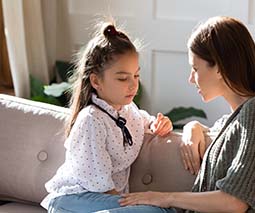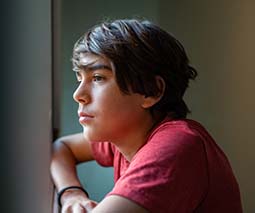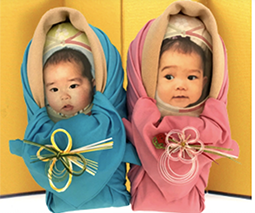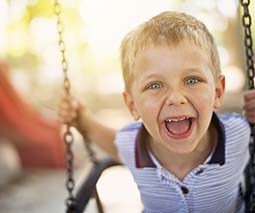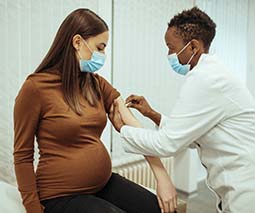How to help your child understand traumatic events
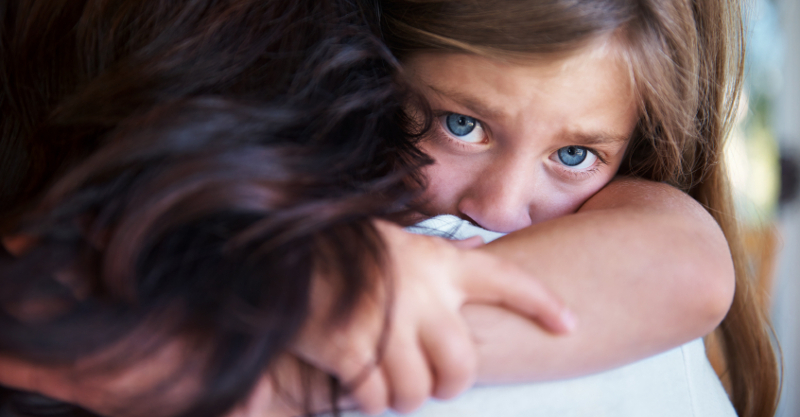
It’s the way of the world. Bad things can and will happen and there’s sometimes not much we can do about it. But you can control how you help your child understand traumatic events and we’ve asked an expert for tips parents can use to help put little minds at ease.
When the news reports on something frightening or traumatic – whether a terror attack, a violent crime or a natural disaster – or your child asks curly questions about death or violence how can parents best tackle those sensitive subjects?
Like any father, family therapist and accredited social health worker Michael Anderton is inundated with questions from his inquisitive five-year-old after watching the nightly news.
Normal questions like ‘Daddy, why are those people fighting? What happens when people die? Daddy can you close the windows, a storm is coming – will it hurt us?’ will just come from a child with a curious nature. But sometimes it’s more.
“At times I sense he is wondering – and worrying – if he and his family are going to be okay and he wants to know what is happening to his world,” Michael tells Babyology.
“Whether it is the reporting of world affairs such as terror attacks, the Syrian refugee crisis, a major cyclone or coverage of news closer to home such as family violence, murder, racism, discrimination and child kidnapping, the 6pm news is, more often that not, saturated with stories of trauma.
“My son’s questions raise my own. How and when do I respond to his questions? What impact is watching the 6pm news having on my son? Should we stop watching the news altogether?”
The father of two, who works at Grow Counselling and Therapy in Brisbane, has provided our readers with eight insights into helping your child understand traumatic events, making the process less traumatic for the family too.
1 Know yourself
As a parent it is valuable to know yourself – talk with a trusted friend, family member, colleague and engage in questions such as ‘‘What are my beliefs about war, poverty, trauma and natural disasters?’, ‘Do I really need/want to be watching the 6pm news when I get home from work or do I actually want/need to play Lego with my son?’. Know where you stand.
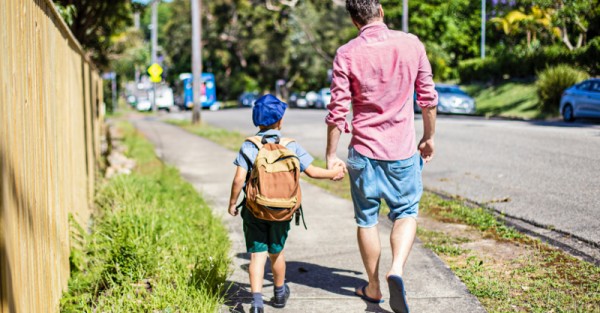
2 Be available, take breaks and check-in
With countless images of death, war, violence and suffering, whether you have a four-year-old or 14-year-old, take control of the remote. If you allow your children to watch the news, be available and take breaks from viewing. Common reactions for children range from curiosity, fear and anxiety, to confusion. Being mindful to these possible reactions and checking in with your child first will help guide how, when and if to respond to their emerging needs and questions.
3 Stay calm and listen with empathy
Whether it is the news broadcasting the devastation caused by Cyclone Winston in Fiji, the terror attacks, or refugees fleeing war in Syria, images of the darker sides of human life can be confronting and distressing for adults and children. To help process and understand complex traumatic events, children need a safe and calm pair of hands to be with them to explore and attend to their emerging thoughts, feelings and often misconceptions. Listening with empathy can often be enough to help your child feel heard and understood and consequently more calm and contained.
4 Ask questions grounded in curiosity
Helping and responding to children’s needs that arise from watching complex traumatic events is not necessarily about parents delivering good answers, but more often about asking good questions that are grounded in curiosity. Questions that start with ‘what’ and ‘how’ that are more about exploring and discovering can help them become more aware of their thoughts and feelings. If tricky questions emerge, ask your child what they think first to slow the process down, giving you valuable time to think on your feet.
5 It’s okay to say ‘I don’t know’
If you don’t know what your views are, it is okay to be honest and say to your child ‘I don’t know’. There’s often no adequate explanation about senseless death or traumatic events. It is fine to say ‘good question, I need some time to think this over, let’s talk about it after school/at dinner’. If you do delay the conversation, make sure you follow up.
6 One size does not fit all
When thinking about how to talk with a child about a traumatic event, consideration needs to given to the age, cognitive development, speech and language development, maturity, temperament and nature of the traumatic event. What works for your eldest child, may not work with your youngest. Keep words short and simple. Check in with the child’s understanding, confirm, reassure and/or clarify information when required.
7 Teaching moments and contributions
In times of crisis, ‘us versus them’ mentalities and contempt for behaviours different to our own can lead to racism and cultural bias. Parents can respond to news coverage with children and teens as ‘teaching moments’, to accept and respect cultural and social groups, see the good in other people, respect diversity and develop interest in learning about other people, cultures and countries. Coverage of traumatic events can generate feelings of helplessness. Help develop your child’s responsibility, compassion and social conscience by donating money, time, signing a petition or getting involved in a cause or charity.
8 Seek help
Every child is different and so are the signs they might be affected by traumatic events. What is useful is to notice reactions and changes in behaviour including appetite changes, changes in sleep patterns, anxiety, tension, headaches, crying, depression, anger or a short temper, hyperactivity or mood swings, difficulty concentrating, numbness, apathy and re-enactments (in play, drawing, talking). If reactions and behavioural changes persist or are extreme then seek professional help.
Lastly, Michael says knowledge is power: “The more informed you are and the more you understand your child, the better you can provide them with the support, nurturing and guidance they need.”
For more advice on how to tackle the world’s news with your children, have a look at our post on how to talk to your kids about the refugee crisis.
